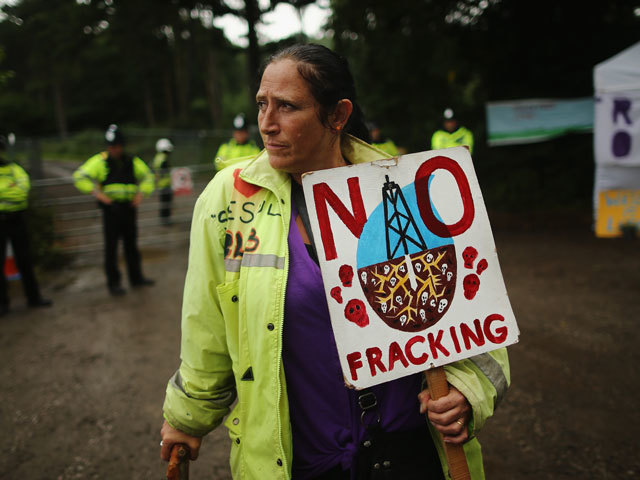
Nearly two-thirds of coalition MPs could face the prospect of fracking in areas that feed water supplies in their constituencies despite public opposition, environmental campaigners have claimed.
Analysis by Greenpeace shows the constituencies of 220 Conservative and Liberal Democrat MPs have an overlap between areas being made available for onshore oil and gas licences and groundwater source protection zones, which feed aquifers.
The research was published by the green group ahead of MPs voting on the Infrastructure Bill next week, which contains legislation on fracking.
Greenpeace said the proposed legislation failed to ban fracking in the catchments supplying groundwater reserves, which provide around a third of England and Wales’ drinking water and as much as 80% in southern England, except in areas closest to aquifers.
But more than half (56%) of people were not in favour of allowing fracking in groundwater protection zones, polling by YouGov for the environmental group found.
A third (36%) of the 1,747 people polled thought that fracking in the UK would be safe.
The Government is pushing for the development of a shale industry in the UK, claiming it would create jobs and growth, reduce energy prices and cut the country’s reliance on gas imports.
But opponents have raised fears that fracking causes earthquakes, can pollute water supplies, and could lead to inappropriate development in the countryside and damage house prices.
There are also concerns over the impacts for the climate of exploiting more fossil fuels.
The latest analysis by Greenpeace shows 201 Conservative constituencies are covered by fracking licences which overlap with groundwater protection zones, while 102 Labour MPs face the same problem, as do 23 Liberal Democrat MPs.
Greenpeace energy campaigner Simon Clydesdale said: “Whether MPs are in favour or against fracking, protecting Britain’s major sources of drinking water from this risky industry should be a no-brainer.
“You simply don’t take chances with such a vital and irreplaceable resource, especially when evidence of harmful impacts from fracking keeps growing.
“Next week’s vote is really the ultimate test of whether our politicians are ready to put the well-being of their communities before the interests of the fracking lobby.
“Their constituents will no doubt be watching and taking note.”
A number of amendments on fracking to the Infrastructure Bill have been tabled, including calls for a moratorium on the controversial process.
For more oil and gas stories click here.